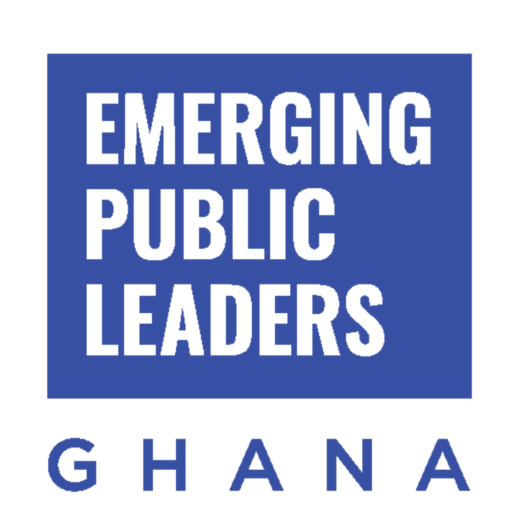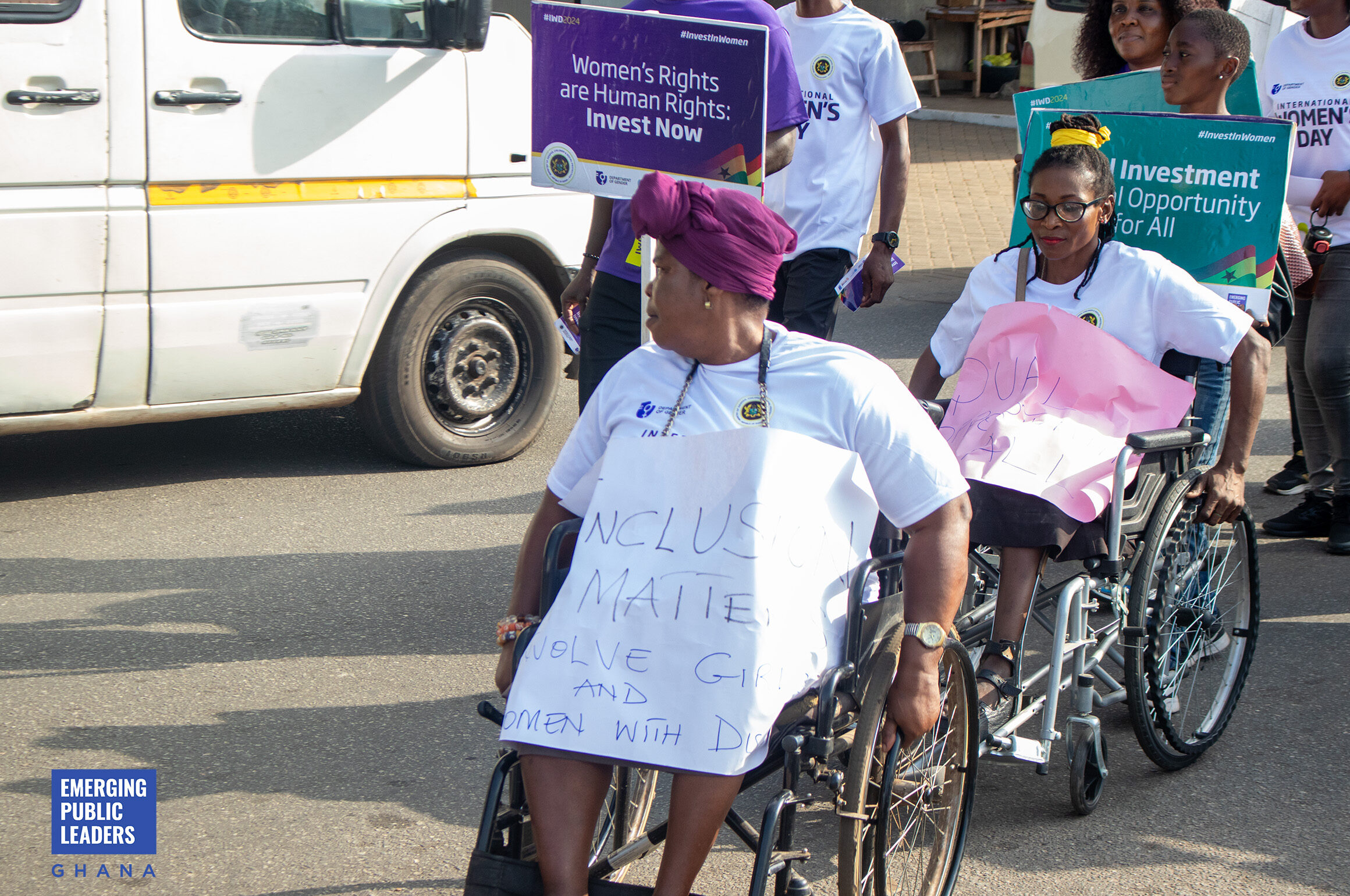According to the World Bank (2024), social inclusion is improving the conditions under which people and groups participate and strengthening the ability, opportunity, and dignity of those disadvantaged due to their identity. It entails giving marginalised persons a fair opportunity to engage fully in society. The United Nations (2016) asserts that social exclusion is a multifaceted, intricate problem beyond material hardship. Although poverty is one factor, inclusion procedures must consider societal views, resource accessibility, and meaningful engagement in social, cultural, and political spheres. Achieving social inclusion for Ghana’s PWDs necessitates improved infrastructure, cultural shifts, and governmental changes. PWDs comprise around one billion people (15%) of the world’s population (World Bank, 2023). With a global employment rate of only 36 percent compared to 60 percent to 80 percent for non-disabled people, PWDs experience significant exclusion from social, economic, and political life despite international frameworks like the Sustainable Development Goals (SDGs) and the Convention on the Rights of Persons with Disabilities (CRPD). This exclusion shows the necessity of making determined efforts to advance real inclusion.
Approximately 80 percent of persons with disabilities reside in developing nations, with an estimated 60 to 80 million living in Africa. It is believed that people with disabilities represent around 10 percent of the overall population in Africa, but this number could reach as high as 20 percent in less affluent areas (Vanderschuren & Nnene, 2021). While criteria for disability rights are outlined in frameworks such as the African Charter on Human and Peoples’ Rights and the Convention on the Rights of Persons with Disabilities, many African countries, including Ghana, struggle to implement these frameworks because of a lack of political will and funding. This article will examine the systemic barriers that hinder social inclusion in the public sector and propose actionable strategies to address these challenges. By emphasising the importance of inclusivity for equitable governance, the article aims to raise awareness, encourage dialogue among stakeholders, and contribute to the broader discussion on public sector reform in Ghana. Ultimately, the goal is to enhance opportunities for marginalised groups, such as persons with disabilities, and promote a more equitable society.
With an estimated 800,000 (3%) persons with disabilities in the population of Ghana (Ghana Statistical Service, 2021), the country has passed the Persons with Disability Act (2006) to safeguard PWDs’ rights and enhance their access to public services. The prohibition of discrimination, the provision of accessible infrastructure, and the protection of educational rights are important clauses. However, due in significant part to finance and enforcement constraints, only 30 percent of public buildings satisfy accessible criteria (Ghana Federation of Disability Organizations, 2023). Although the 2015 National Disability Policy and the Persons with Disability Act have improved inclusion efforts, gaps remain. Additionally, unlike Kenya’s Persons with Disabilities Act, which requires a 5 percent quota in government jobs, the policy does not address quotas or affirmative hiring practices. South Africa has shown the value of accountability in accomplishing inclusion objectives by enforcing reporting on PWD employment levels. Ghana could adopt similar measures to promote transparency and increase the representation of PWDs in public service roles.
Implementing disability policies in Ghana is hampered by practical issues such as financial constraints, a lack of qualified staff, and ineffective bureaucracy (Ghana Federation of Disability Organizations, 2021). Less than 25 per cent of buildings exceed accessibility standards, indicating a poor pace of infrastructure improvement brought on by problems with funding and oversight (Ghana Statistical Service, 2021). Additionally, corruption has hindered the allocation of funds for disability initiatives, complicating the implementation of necessary reforms. Improving the formulation of inclusive policies would necessitate staff training and establishing monitoring systems to ensure proper resource distribution.
Different groups within the PWD community experience varying challenges due to factors like gender, age, and rural-urban disparities. Women with disabilities face greater discrimination, limiting their employment opportunities compared to men with disabilities (Ghana Federation of Disability Organizations, 2021). In rural areas, PWDs encounter more severe accessibility issues and reduced healthcare access, further marginalising them from public services. Incorporating intersectional considerations into policies would address these unique needs and foster a more inclusive public sector. Also, the private sector is as critical as the public in advancing disability inclusion. Corporate collaborations can offer PWDs training and resources to improve their employment prospects. Organisations like Emerging Public Leaders (EPL) Ghana, focused on public sector leadership, could advocate for private-public partnerships that improve social inclusion initiatives across sectors, showing a commitment to inclusion beyond public sector confines.
To promote PWD Inclusion in Ghana’s Public Sector, relevant institutions such as the Ministry of Gender, Children, and Social Protection should enforce existing laws related to the rights of persons with disabilities (PWDs) should be enforced. Stringent penalties for non-compliance, modelled after South Africa’s Employment Equity Act, should also be introduced. This will hold public institutions accountable and encourage adherence to PWD inclusion policies. In addition, targeted hiring quotas for PWDs in public sector roles, similar to those outlined in Kenya’s Persons with Disability Act, should be implemented to ensure that PWD representation is a goal and a measurable outcome within public institutions. Further, the Ministry can advocate for increased financial resources dedicated to accessibility projects and initiatives to improve infrastructure for PWDs. Partnerships with private organisations can amplify these efforts, providing additional funding and expertise to enhance accessibility. Public awareness initiatives should be launched to address and reduce the stigma associated with disability. Focus on changing societal perceptions through campaigns that promote the contributions of PWDs in the workplace, fostering an inclusive culture in public institutions.
The Office of the Head of Civil Service will develop and implement affirmative hiring practices within public sector agencies to recruit and retain PWDs actively. This could include creating internship programmes and mentorship opportunities that support PWDs in navigating public-sector employment. Also, public service institutions must promote the establishment of adaptable work environments that accommodate the diverse needs of PWDs. This may involve flexible work arrangements, ergonomic workspaces, and tailored support systems to ensure all employees can perform their roles effectively.
The Ministry of Education and Ghana Education Service should ensure that education policies promote equal access to resources and assistive technologies for PWDs. Educational reforms should also align with workforce needs better to prepare PWDs for employment in public service roles, focusing on skills development and vocational training.
Finally, institutions should develop frameworks for monitoring and evaluating the effectiveness of inclusion initiatives. Regular assessments should be conducted to track progress, gather feedback, and adjust strategies to improve PWD representation in the public sector.
By implementing these strategic recommendations, Ghana can develop a more inclusive public sector that meets legal standards and reflects the diverse makeup of its society, benefiting all citizens. Social inclusion is essential for creating a just society. While Ghana’s Persons with Disability Act has established a foundation for inclusion, enforcement and structural challenges still need to be addressed. Overcoming these barriers requires government, civil society, and private sector collaboration. With strengthened laws, enhanced accessibility, a focus on intersectional needs, and cross-sector partnerships, Ghana can foster a more inclusive public sector that benefits everyone and promotes sustainable development.
REFERENCES
- Ghana Federation of Disability Organizations. (2021). Annual report 2021. Retrieved from Link
- Ghana Federation of Disability Organizations. (2023). Accessibility report 2023. Retrieved from Link
- Ghana Statistical Service. (2021). Population and Housing Census 2021. Retrieved from Link
- United Nations. (2016). Leaving no one behind: The imperative of social inclusion. Retrieved from Link
- Vanderschuren, M. J. W. A., & Nnene, O. A. (2021). Inclusive planning: African policy inventory and South African mobility case study on the exclusion of persons with disabilities. Health Research Policy and Systems, 19, 124. Retrieved from Link
- World Bank. (2023). Disability inclusion in the workforce: A global perspective. Retrieved from Link
- World Bank. (2024). Social inclusion and the role of public policy. Retrieved from Link


